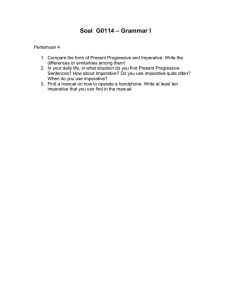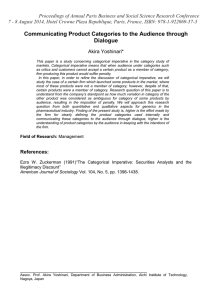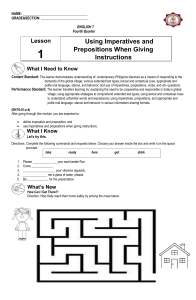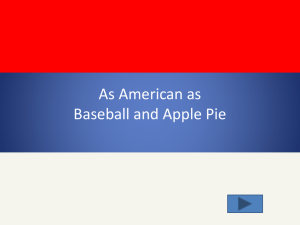Document 11162970
advertisement
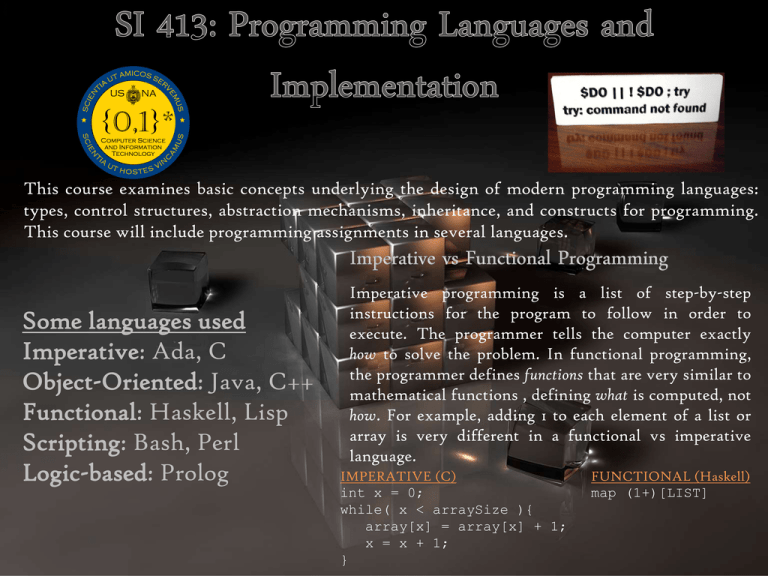
This course examines basic concepts underlying the design of modern programming languages:
types, control structures, abstraction mechanisms, inheritance, and constructs for programming.
This course will include programming assignments in several languages.
Some languages used
Imperative: Ada, C
Object-Oriented: Java, C++
Functional: Haskell, Lisp
Scripting: Bash, Perl
Logic-based: Prolog
Imperative programming is a list of step-by-step
instructions for the program to follow in order to
execute. The programmer tells the computer exactly
how to solve the problem. In functional programming,
the programmer defines functions that are very similar to
mathematical functions , defining what is computed, not
how. For example, adding 1 to each element of a list or
array is very different in a functional vs imperative
language.
IMPERATIVE (C)
int x = 0;
while( x < arraySize ){
array[x] = array[x] + 1;
x = x + 1;
}
FUNCTIONAL (Haskell)
map (1+)[LIST]
